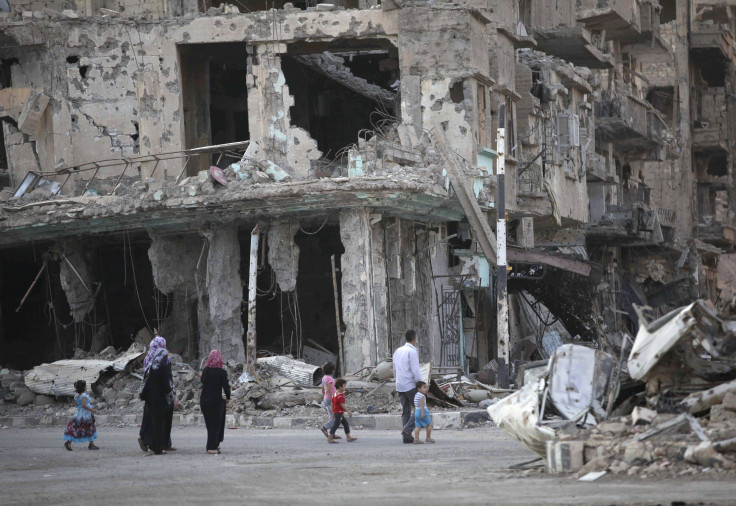Syria Crisis: UN Report Confirms Extensive Use Of Chemical Weapons In Syria; Ban Says Perpetrators Of "War Crime" Should Be Held Accountable
Turkey Shoots Down Syrian Helicopter

The United Nations confirmed Monday that chemical weapons were used on Aug. 21 near the Syrian capital of Damascus, and provided forensic details of weapons used in the attack, which killed more than 1,400 people including hundreds of children.
Citing the findings of a team of experts, U.N. Secretary-General Ban Ki-moon said that chemical weapons have been used in the ongoing conflict between the Syrian government and rebel forces, and also against civilians on a relatively large scale.
“The results are overwhelming and indisputable. The facts speak for themselves. The United Nations Mission has now confirmed, unequivocally and objectively, that chemical weapons have been used in Syria,” Ban told reporters following a closed door meeting to brief the Security Council about the report's findings.
In its report, the team, led by Swedish scientist Ake Sellstrom, did not assign blame on who perpetrated the Aug. 21 attack, but gave extensive forensic information on the type of chemical agent and weapons used. The team's mandate did not include finding out who was behind the attack.
According to the report, a nerve gas was used on Aug. 21 and an analysis of the environmental, chemical and medical samples collected provide “clear and convincing evidence that surface-to-air rockets containing the nerve agent Sarin were used in Ein Tarma, Moadamiyah, and Zamalka, in the Ghouta area of Damascus.”
The team examined blood, urine, hair, soil and rocket samples, and Ban said that 85 percent of the blood samples tested positive for sarin. According to him, the attack marked the most serious chemical weapon assault since Saddam Hussein’s attack on the Halabja region of Iraq, and is one of the worst uses of a weapon of mass destruction in the twenty-first century.
"This is a war crime," Ban said, adding that “the report makes for chilling reading.” He stressed that the international community has a “responsibility to hold the perpetrators accountable” and to ensure that such weapons are never used in the future.
Responding to a question on whether he knew who used the deadly gas, Ban said, that “we may all have our own thoughts" but it was for "others to decide." However, observers, citing the high quality of the sarin gas and the weapons used in the attack, pointed toward the involvement of Syrian President Bashar Assad’s regime.
Samantha Power, the U.S.'s ambassador to the UN, said: "The technical details make it clear that only the regime could have carried out this large-scale attack."
UK Foreign Secretary William Hague also echoed similar views and said the scale of the attack, the sample test results and the information on the munitions showed that the "Syrian regime is the only party that could have been responsible," BBC reported.
Assad and his staunch ally, Russian President Vladimir Putin, have claimed that Syrian opposition forces used chemical weapons, while the rebel forces, the U.S. and other Western powers blame Assad’s regime for the deadly attack.
Turkey Shoots Down Syrian Helicopter
Meanwhile, a Turkish fighter jet shot down a Syrian military helicopter on Monday, after it reportedly strayed across the border.
Turkey’s Deputy Prime Minister Bulent Arinc said the aircraft was shot down after it violated Turkish air space and ignored repeated warnings to leave. The fate of the crew of the Syrian aircraft was not known except that the aircraft crashed in Syrian territory, the Associated Press reported, citing Arinc.
The incident is bound to further escalate tension on the Turkey-Syria border, as the former has been backing Syrian rebels since the outbreak of the civil war in the Middle Eastern nation.
© Copyright IBTimes 2024. All rights reserved.












